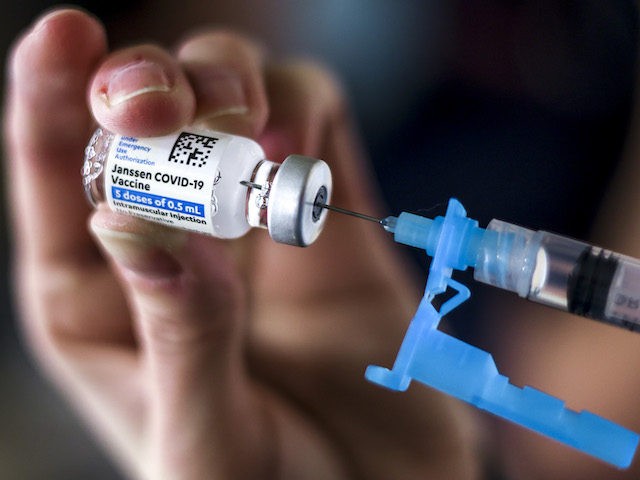The U.S. Food and Drug Administration (FDA) ruled on Thursday to limit the authorized use of the Johnson & Johnson (J&J) coronavirus vaccine to individuals who cannot receive other vaccines or for whom other vaccines are not accessible.
The Johnson & Johnson vaccine has been plagued with controversy since its rollout with multiple reported cases of rare blood clots. On Thursday, the FDA confirmed these reports while stopping short of pulling the J&J vaccine altogether. The administration still highly recommends the Pfizer and Moderna vaccines.
“If there’s an alternative that appears to be equally effective in preventing severe outcomes from COVID-19, we’d rather see people opting for that,” FDA’s vaccine chief Dr. Peter Marks said. “But we’ve been careful to say that–compared to no vaccine–this is still a better option.”
Marks said that blood clots from the J&J vaccine typically happen within two weeks of receiving the shot, and that people who previously received the vaccine have little to worry about.
“So if you had the vaccine six months ago you can sleep soundly tonight knowing this isn’t an issue,” he said.
As noted by the Associated Press, the J&J vaccine was first approved in February of 2021 and was hailed as a valuable tool to combat the coronavirus pandemic as a one-time dose vaccine compared to the two-dose Moderna and Pfizer vaccines spaced 4 and 3 weeks apart, respectively. However, reports of blood clots eventually saddled the vaccine’s reputation and the alternative vaccines–Moderna and Pfizer–became the primary shots the CDC recommended. That recommendation came in December.
Per the AP:
As of mid-March, federal scientists had identified 60 cases of the side effect, including nine that were fatal. That amounts to 3.23 blood clot cases per 1 million J&J shots. The problem is more common in women under 50, where the death rate was roughly 1 per million shots, according to Marks.
Marks said the FDA spent extra time analyzing the problem to be sure it wasn’t connected to a separate issue, such as women taking birth control medications that raise their risk of clotting. The J&J vaccine will carry a starker warning about potential “long-term and debilitating health consequences” of the side effect.
Despite the warnings and restrictions, the J&J vaccine may still be administered to Americans who specifically request it or to Americans who may have had a severe reaction to the other vaccines and cannot receive a second dose. A J&J spokesman said that the company’s vaccine is still better than no vaccine.
“Data continue to support a favorable benefit-risk profile for the Johnson & Johnson COVID-19 vaccine in adults, when compared with no vaccine,” said the spokesman.

COMMENTS
Please let us know if you're having issues with commenting.